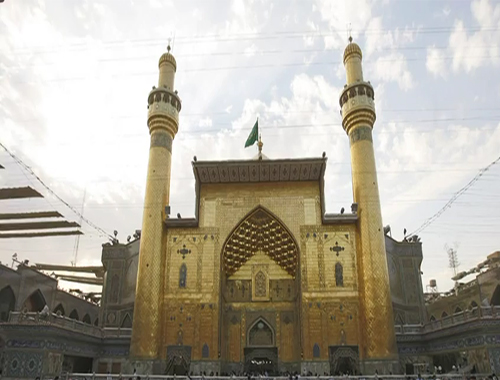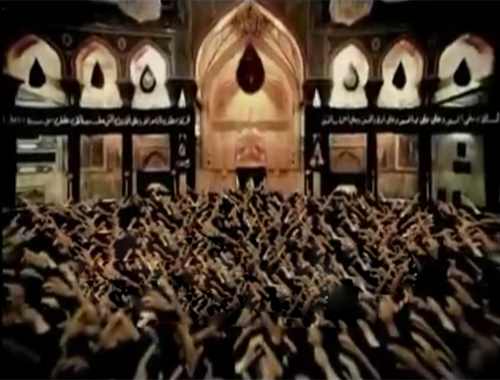Guarantee of the Enforcement of Law
- Details
- Hits: 1926
Guarantee of the Enforcement of Law
As already said, we mean by law the regulations formulated and supported by a general authority. Hence there exists a sort of guarantee of their enforcement.
The factors which guarantee its enforcement naturally vary in the case of different kinds of law. From our description of law and its sources it is easy to understand the nature of this variation.
In this connection what appears to be necessary is to throw a little more light on the factors which guarantee the enforcement of law under the social system of Islam. These factors are as under:
• Mature thinking of the masses,
• Human and ideological sentiments,
• Faith in Allah and His recompense and retribution in this world as well as in the next,
• Deep and whole‑hearted respect of law because it has a direct or indirect connection with Allah,
• Exhortation to good and restraining from evil; and
• Government.
Mature thinking
Islam has made special efforts to raise the level of the outlook of Muslims on life and their power to find out what is good for them and what is bad. That is why it is observed in the case of many legal verdicts that they are accompanied by some sort of logical arguments. For example look at these Qur'anic verses:
Regarding drinking and gambling
"They ask you about drinking and gambling. Say: There is great sin in both, though they have some benefits for men; but the sin of them is greater than their usefulness". (Surah al‑Baqarah, 2:219).
"Believers, intoxicants and games of chance, idols, and divining arrows are nothing but abominations devised by Satan. Therefore avoid them so that you may prosper. Satan seeks only to stir up enmity and hatred among you by means of strong drinks and games of chance and to divert you from the remembrance of Allah and from your worship. Hence will you abstain from theme ' (Surah al‑Maidah, 5:90 ‑ 91).
Regarding justification for the defence of one's self and one's faith: "Permission to take up arms is hereby granted to those who are attacked; they have suffered injustice. Allah has all the power to give victory to those who were unjustly expelled from their homes only because they said: Allah is our Lord" . (Surah al‑Hajj, 22: 3 9 ‑ 40).
We repeatedly meet with such logical, reasoning in the verses of the Qur'an and sayings of the holy Prophet and the holy Imams on various questions.
A great Shi'ah scholar of the fourth century (Hijri era), Shaykh Saduq, has collected a good number of such traditions in the form of a book, named Ilal al Sharai (Philosophy of Islamic Law).
This kind of reasoning in the Qur'an and the Sunnah shows that though Islam wants every Muslim to follow every commandment of Allah and His Prophet unhesitatingly on the basis of his faith in the Divine revelation and without waiting for knowing the philosophy behind each rule, yet it has not overlooked the principle that the knowledge of the rationale of a decree moves one appreciably to implement it.
Human and Ideological sentiments
A part of the laws and social provisions is directly related to one's behaviour towards his relatives, neighbours, colleagues and co‑religionists. One is by nature inclined to show love and tenderness to them. A social system, the rules of which in respect of one's behaviour towards others are in keeping with this natural tendency, can, by promoting and strengthening these natural sentiments, create an inner force to implement its provisions not only in this field, but in all other fields of social behaviour also, for all social rules are directly or indirectly related to human feeling of observing the rights of others.
As we pointed out earlier, due emphasis has been laid on the promotion and the strengthening of pure and natural human sentiments in the social system of Islam. A number of devotional acts, such as spending, fasting, pilgrimage etc. have the quality of strengthening human sentiments of communal and ideological collaboration.
Faith in Allah and His recompense in this as well as in the next world
All the known legal systems have the provisions of reward and punishment for those who abide by law‑or violate it. The hope for reward and fear of punishment are effective forces to ensure the observance of law. But the guarantee of recompense and retribution by Allah is far more effective, for every believer knows well that his salvation depends on the performance of good deeds and the observance of the laws enunciated by Allah, His Prophet, his vicegerents and the just and virtuous rulers who manage the affairs of the people in accordance with the Divine injunctions. He also knows that nothing can be concealed from Allah and that there is no way to escape from His sway.
(Luqman said): `My dear son! Even if your deeds be so small that it can be compared to a mustard‑seed, which is hidden in a rock or in the heavens or in the earth, Allah will bring it forth. Indeed Allah is Subtle, Aware of everything". (Surah Luqman, 31:16).
"Their book (deed sheet) shall be placed before them, and you shall see the offenders dismayed at what is inscribed in it. They shall say: Alas for us! What kind of a book is this that leaves nothing small or great, but bas counted it. They shall find all that they did confronting them. And your Lord wrongs none". (Surah al‑Kahf, 18:49).
True faith in the Divine recompense and retribution on the Day of judgement is a powerful incentive to abide by one's duties and is the most effective factor in the enfocement of law.
Whole‑hearted respect of law
Another effective factor in the implementation of law is that the people should be looking at the rules laid down for the organization of their life with respect, and attaching a sort of sanctity to them. Whenever they default intentionally or unintentionally, they should be feeling prick of conscience, so that they could repent and return to the right path of following the law.
The sanctity attached to religion in an ideological society is one of the most significant examples of the wholehearted respect of law. Historical and social experience has shown that this respect has always played a wonderful role in giving currency to the best deeds in ideological societies. It is such a powerful factor that its equivalent cannot be found in other societies.
Exhortation to good and restraining from evil
Mature thinking and the realization that the enforcement of law is in the interest of all, creates an atmosphere conducive to the general support of what is right. Indignation against law‑breaking and the whole‑hearted respect of law to the extent of holding it sacred, automatically creates a feeling among the members of a society which impels them to support law actively, and take action to exhort to good and restrain from evil.
In the social system of Islam much emphasis has been laid on this active support, and attention of all has been drawn to its important role.
The best way to show what importance the Divine system of Islam has given to the general support of law, and what is right, is to quote some relevant Qur'anic verses and traditions.
"Let there be among you a group that calls to virtue, exhorts to what is good and restrains from evil. It is such people who shall prosper". (Surah Ale Imran, 3:104).
"You are the best nation that has been raised for mankind. You enjoin right conduct and forbid indecency, and you believe in Allah. Had the people o f the Scripture believed, it would have been better for them. Some of them are the believers; but most o f them are wicked" . (Surah Ale lmran, 3:110).
"They are not all alike. Among the people o f the Scripture there is a staunch group, who all night long recite the revelation of Allah, falling prostrate before Him. They believe in Allah and the Last Day, enjoin right conduct, and forbid indecency. They vie with one another in good deeds. It is they who are the good. Whatever good they do, they will not be denied its reward. Allah is well aware of the pious". (Surah Ale Imran, 3:113 ‑ 115).
"The hypocrites, whether men or women are alike. They enjoin the wrong and forbid the right . . . . . . . . . . . . . The believers, whether mere or women, are protecting friends of each other. They enjoin the right and forbid the wrong. They are particular about their prayers, pay the zakat, and obey Allah and His Messenger. They are those whom Allah will show mercy. Surely Allah is Mighty, Wise". (Surah al‑Tawbah, 9:67 ‑ 71).
"Those who repent, who worship, who are thankful, who strive, who bow and fall prostrate (before Allah), who enjoin the right, and forbid the wrong, and who observe the limits of Allah. Give glad tidings to the believers ". (Surah al‑Taubah, 9:112).
The holy Prophet has said:
"My nation will always be in a happy position, so long as it exhorts to good and restrains from evil. But as soon as it abandons these two qualities, misfortune will overtake it. One group will come out to exploit another group. They will receive no help either from those on the earth or those in the heaven".
Allah has condemned the Israelite rabbis, because they saw .the misdeeds of the evil‑doers and mischief‑makers but did nothing to stop them, as they expected their favour and were afraid of their power, though Allah has told the people not to fear anyone, but to fear Him alone. Allah says:
"The believers, men and women help one another, exhort to good and restrain from evil" . (Surah Ale Imran, 3:111).
Allah has made exhortation to good and restraining from evil as the foremost duty, because He knows that if this duty is carried out, all other duties, whether hard or easy, will also be carried out.
Exhortation to good means:
• Invitation to Islam;
• Stopping injustice;
• Resistance to aggressors and evil‑doers;
• Correct distribution of public funds, collection of money from whom it is due, and spending it where it should be spent. (Imam Ali ‑ al‑Wasail al‑Shia'h, Vol. 11).
Restraining from evil means
"Oppose them (evil‑doers) in your heart and express your opposition verbally also. Stand out against them and do not be afraid of the evil‑speaking of anybody, if you are right. If they accept the truth, there is no action to be taken against them. Action will be taken only against those who violate the rights of others and exceed their own limits. It is they who will be meted out a painful chastisement. If they persist in their evil deeds, rise against them and show your indignation. But by doing this do not try to gain power or wealth for yourself. Continue your fight till they repent and submit to the commandment of Allah". (Imam al Baqir ‑ al‑Kafi, Vol. 5).
"A society, in which the weak cannot secure their rights against the powerful, will never prosper". (Imam al Sadiq ‑ al‑Kafi, Vol. 3 ).
"Exhortation to good and restraining from evil is the way of the Prophets and the practice of the virtuous. It is a great duty. Other duties are performed by the light of it. As a result of it, the roads become safe, means of earning take their lawful course, discrimination and aggression are done away with, the land becomes populous, the rights are restored, and the affairs of the society are put straight". (Imam al Baqir ‑ al‑Kafi, vol. 5).
These are some examples of the Qur'anic verses, and the traditions, in this respect. They clearly show the importance in the social system of the popular support of right and justice, and the vigilance of all in regard to the just implementation of law.
A social system, howsoever good and just it may be, can bring happiness only if the people are not too indifferent and complacent. Otherwise their fate will be the same as mentioned in the following tradition, which has come down from imam al Baqir (P). "Then the wrath of Allah reaches its height, and His retribution overtakes all. The virtuous are ruined along with the wicked, and the young in the houses of their elders"











